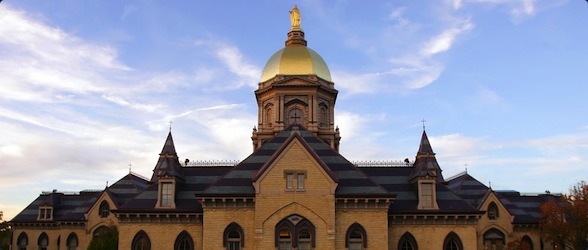
On February 21, 2014, the 7th U.S. Circuit Court of Appeals ruled that the University of Notre Dame had to accept an accommodation to the HHS mandate that requires employers to pay for abortion-inducing drugs, contraception, and sterilization. Today, the U.S. Supreme Court sent the case back to the appellate panel for a review in light of the high court’s ruling in the Hobby Lobby case.
The Hobby Lobby case was decided June 30, 2014, over four months after Notre Dame lost in the appeals court. In its ruling, the Supreme Court ruled that family-owned businesses could assert religious freedom interests in not complying with the HHS mandate. The 7th Circuit must now review its 2-1 decision taking into consideration the entire Hobby Lobby case. The Notre Dame case is the only one to challenge the HHS mandate that was decided prior to the Hobby Lobby case.
This is a good omen but it hardly settles the matter. Notre Dame is right to reject the accommodation: even though it is allowed to opt out, the effect of the accommodation is to force insurers to pay for abortifacients.
If the owners of a family business can assert religious liberty objections, it makes sense that Catholic non-profits should at least have the same rights.
The central problem with the HHS mandate is not in what it is requiring Catholic non-profits to fund: it is the authority of the federal government to decide which Catholic institutions are Catholic. The HHS mandate says that Catholic entities that hire and service non-Catholics should no longer be considered Catholic. Instead of treating this as a liability, it should be seen as meritorious.







